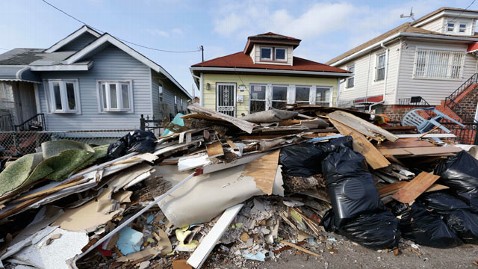Lance Armstrong, formerly cycling's most decorated champion and considered one of America's greatest athletes, confessed to cheating for at least a decade, admitting on Thursday that he owed all seven of his Tour de France titles and the millions of dollars in endorsements that followed to his use of illicit performance-enhancing drugs.
After years of denying that he had taken banned drugs and received oxygen-boosting blood transfusions, and attacking his teammates and competitors who attempted to expose him, Armstrong came clean with Oprah Winfrey in an exclusive interview, confessing to using banned substances for years.
"I view this situation as one big lie that I repeated a lot of times," he said. "I know the truth. The truth isn't what was out there. The truth isn't what I said.
"I'm a flawed character, as I well know," Armstrong added. "All the fault and all the blame here falls on me."
In October, the U.S. Anti-Doping Agency issued a report in which 11 former Armstrong teammates exposed the system with which they and Armstrong received drugs with the knowledge of their coaches and help of team physicians.
George Burns/Courtesy of Harpo Studios, Inc./AP Photo
Lance Armstrong's Oprah Confession: The Consequences Watch Video
Lance Armstrong's Many Denials Caught on Tape Watch Video
Lance Armstrong's Winfrey Confession: The Fallout Watch Video
The U.S. Postal Service Cycling Team "ran the most sophisticated, professionalized and successful doping program that sport has ever seen," USADA said in its report.
As a result of USADA's findings, Armstrong was stripped of his Tour de France titles. Soon, longtime sponsors including Nike began to abandon him, too.
READ MORE: Did Doping Cause Armstrong's Cancer?
Armstrong said he was driven to cheat by a "ruthless desire to win."
He told Winfrey that his competition "cocktail" consisted of EPO, blood transfusions and testosterone, and that he had previously used cortisone. He would not, however, give Winfrey the details of when, where and with whom he doped during seven winning Tours de France between 1999 and 2005.
He said he stopped doping following his 2005 Tour de France victory and did not use banned substances when he placed third in 2009 and entered the tour again in 2010.
"It was a mythic perfect story and it wasn't true," Armstrong said of his fairytale story of overcoming testicular cancer to become the most celebrated cyclist in history.
READ MORE: 10 Scandalous Public Confessions
PHOTOS: Olympic Doping Scandals: Past and Present
PHOTOS: Tour de France 2012
Armstrong would not name other members of his team who doped, but admitted that as the team's captain he set an example. He admitted he was "a bully" but said there "there was a never a directive" from him that his teammates had to use banned substances.
"At the time it did not feel wrong?" Winfrey asked.
"No," Armstrong said. "Scary."
"Did you feel bad about it?" she asked again.
"No," he said.
Armstrong said he thought taking the drugs was similar to filling his tires with air and bottle with water. He never thought of his actions as cheating, but "leveling the playing field" in a sport rife with doping.










